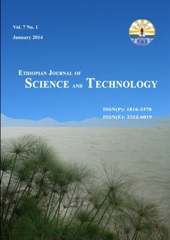The role of economically important traits for genetic improvement and climate change adaptation in livestock production: A review
Keywords:
Cattle, Climate smart, Economical important traits, Performances, Markers
Abstract
Breeding indices include economically important traits associated with high yield, thermal tolerance, low quality feed and disease resistance, and give more consideration of genotype-by-environment interactions to identify stress adapted animals The objective of this paper was to quantify the role of economically important traits for genetic improvement and climate change adapted livestock production. Climate change adaptation genes exist at Protein, the genome (DNA), the transcriptome (RNA), the proteome, Amino-Acid (AA) level .Genotypes that affect milk production traits could be used as genetic markers in marker-assisted breeding. Genes with large effects show part of the genetic differences between animals, and identifying these genes can help to estimate more accurate breeding. For example, polymorphisms in DGAT1, GH and GHR genes have significant effects on reproduction and production traits. The variation in the bovine FABP4 gene also affects milk yield and milk protein content. Growth hormone receptor (GHR), IGF-1 and IGFBP-3 genes regulate postnatal somatic growth and stimulate anabolic processes and showed genetic polymorphisms and associated with production traits in cattle, goats and chickens. In beef cattle, the genes related to economically important traits are peroxisome proliferation activator-y (ppar-y), sterol regulatory element binding protein 1(srebp-1), leptin, stearoyl-coa desaturase (scd1), and thyroid hormone releasing protein. These genes help in lipid and glucose metabolism and in energy homeostasis by promoting glycolsis, lipogenesis and adipo-genesis as well as in regulating body weight, metabolism and reproductive function. Therefore, identifying economically important traits and genes using marker assisted selection related to milk production and beef production can enhance production and productivity.
Published
2025-04-27
How to Cite
Alemayehu, K., & Molla, E. (2025). The role of economically important traits for genetic improvement and climate change adaptation in livestock production: A review. Ethiopian Journal of Science and Technology, 11(2), 145-163. Retrieved from http://journals.bdu.edu.et/index.php/EJST/article/view/2598
Issue
Section
Articles
Copyright (c) 2025 Kefyalew Alemayehu, Eyayu Molla

This work is licensed under a Creative Commons Attribution-NonCommercial-NoDerivatives 4.0 International License.

